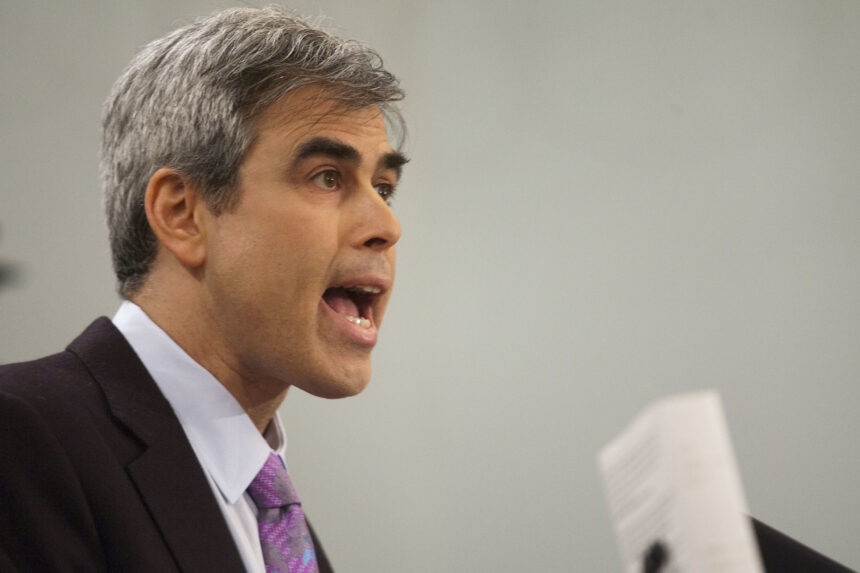The University of Austin recently launched its inaugural class to the applause of conservatives and liberals alike, both of whem are alarmed by the increasing “woke” takeover of American higher education. According to its website, the University of Austin is committed to, “the unfettered pursuit of truth, freedom of inquiry, freedom of conscience, and civil discourse.”
Similar alternative academic institutions have also emerged in recent years in response to the woke crusade.
The mission of Heterodox Academy, spearheaded by Jonathan Haidt, a social psychologist at New York University’s Stern School of Business, is “to improve the quality of research and education in universities by increasing open inquiry, viewpoint diversity, and constructive disagreement.” Ralston College in Savannah, Georgia, has also set for itself lofty aims. Co-founded by Canadian psychologist Jordan Peterson, it claims “to stand for something that matters profoundly: for thinking freely and deeply, in conversation with others, about fundamental questions.” Like Heterodox Academy, it presents itself as a bulwark against the intersectional onslaught.
The emergence of these new experiments in academic parallelism, however, forces Christians, conservatives, and patriots to ask one fundamental question: Is it enough?
Put another way, can the moral, epistemic, and metaphysical assumptions of mere Enlightenment liberalism—defined by tolerance, individualism, the free market, rejection of the common good, and a denial of man’s telos—stand up to the ever-advancing woke steamroller? For all the nobleness of these efforts, there is reason to doubt the efficacy of such projects and the concomitant values they represent when push comes to shove.
One reason for such doubt stems from the flawed metaphysics of man inherited from Enlightenment thinkers like John Locke, Thomas Hobbes, Jean-Jacques Rousseau, and Immanuel Kant. These assumptions have underpinned the American experiment since its inception and remain with us to the present day. Whether man is conceptualized as a tabula rasa, as a pre-societal savage first existing in a “state of nature,” as a collectivist “general will,” or as a pure rational intellect, such characterizations of man share a mutual rejection of the classic Aristotelian notion of the human person as possessing a fundamental nature that is ordered purposefully and irreducibly social.
This conceptual uncoupling of man’s individual accidents and prerogatives from his essential, purpose-oriented nature has largely been responsible for the unrelenting proliferation of “rights” claims for several hundred years, culminating most starkly in the present “LGBTQ+” movement, where both the “T” and “+” represent a potentially infinite set of marginalized groups. Yet when members of such groups are pressed, they are unable now to even define the word “woman.”
Another reason to doubt the efficacy of these merely anti-woke institutions is their near-absolutist commitment to the notion that inquiry about any and all ideas is always morally preferable and indeed always possible. Given such commitments, we should ask whether these projects would be able to actually cultivate a virtuous and flourishing society, or whether they would mainly serve to facilitate a neverending dialogue between all perspectives whatsoever where no assertion of better or worse could ever be soundly established. Furthermore, what do proponents of a merely negative thesis do when confronting ideological opponents who, by their own admission, are not interested in dialogue, see all discourse as power, and are likely not capable of such discourse anyhow?
To paraphrase sacked Eton lecturer Will Knowland, in history, this is not how big problems have been solved. People did not sit down with Hitler and have a talk about the pros and cons of National Socialism and solve things with debate.
Whereas leftism possesses a telos of unrelenting egalitarianism and neverending revolution, mere anti-wokeism possesses no such countervailing telos of its own. On a long enough timeline, in a game where one player is committed to seeing every dialogical and cultural contest as zero-sum while the other is committed to seeing no such contest as zero-sum whatsoever, the winner is clear. Hence, by its own commitments, mere anti-wokeism lacks the conceptual, normative, and metaphysical resources to draw any kind of nonnegotiable line in the sand whatsoever against ideological opponents hell-bent on pressing their own interests further and further.
Indeed, if scholars, statesmen, and citizens concerned about wokeism’s final trajectory truly want to fight and win the culture war both in academia and beyond, then doing so will require nothing less than a robust return to a more traditional template of higher education altogether. It must embody the very best of the West’s scholastic underpinnings (natural law, traditional patriarchy, virtue). Only by such a return can Western higher education and Western culture more generally be saved from the present disorders.
That being said, as these new experiments in academic parallelism continue to emerge in response to wokeism’s creep, secular conservatives, anti-woke liberals, and anyone else with an affinity for such projects, should seriously reconsider the strength, beauty, and indeed truth of the Christian-Aristotelian roots of both America’s founding and of Western civilization more broadly. For the left’s ultimate direction of travel is clear, and mere anti-wokeism will not be enough.

Leave a Reply